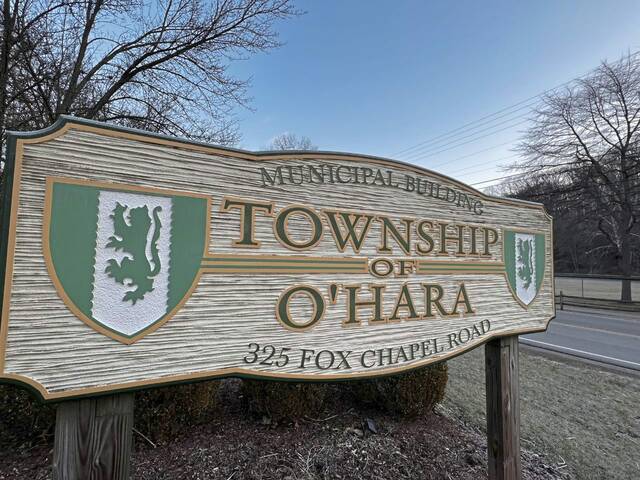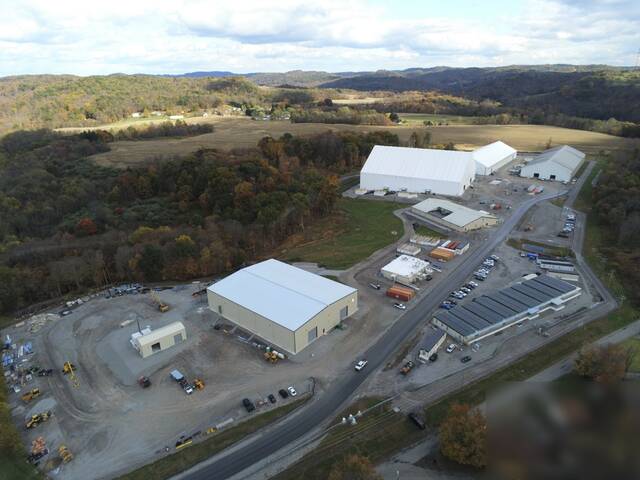O’Hara property owners will have to pay about 14% more in real estate taxes as part of the township’s 2025 budget.
Council voted 5-2 on Dec. 10 to pass its spending plan and raise the millage rate from 2.1 mills to 2.4 mills. Council Vice President Mike Hamill and Councilman Paul Cullen voted against the budget.
O’Hara’s median property value is $350,700.
That property owner would see the township’s real estate tax bill go from $736 this year to $841 next year.
One mill generates about $1.277 million in revenue for the township.
The last time taxes were increased was in 2020 — from 1.9 mills to 2.1 mills.
The 2025 budget also utilizes about $1.443 million of the township’s unassigned fund balance, or reserves, to help balance the budget.
Projected revenues and expenditures were listed at about $17.38 million.
Expected income includes about $3 million in real estate taxes, $5.4 million in earned income and local tax enabling act funds, $1.65 million in shared revenue and grants, $590,000 in charges for services, close to $200,000 in business license and permits, $160,000 in building/structure funds, nearly $125,000 in interest earnings and $28,500 in fines.
Expected spending includes $7.94 million for public service, $3.435 million for capital improvements, just over $3 million for police, $587,000 for debt service, $400,000 for community development and $226,000 for pensions.
Township Manager Julie Jakubec, who is usually confident about crafting O’Hara’s annual budget for the past decade, said this was the hardest year for financial planning due to instability in Allegheny County.
“(This budget is the) toughest one I have ever done,” Jakubec said.
A recent ruling by an Allegheny County judge has made it easier for Allegheny County property owners to challenge property assessments.
For example, a house valued at $200,000 used to be able to be lowered to $162,000. Now it can be lowered to $127,000.
Township officials are expecting about $100,000 in real estate tax refunds this year and projects at least $55,000 in refunds next year.
Jakubec said council exhausted all efforts to avoid a tax hike next year. The budget passed with no cuts to programs or services.
The township hosted a special workshop meeting Nov. 19 to go over the budget, and there were additional talks this month before its passing.
“There was a healthy discussion,” Councilman George Stewart said.
Some of the tax refunds are due to assessment appeals from RIDC Park properties, Stewart said.
The loss in revenues and inflationary increases on materials, repairs, utilities and just about everything were among the driving forces for the tax hike.
Stewart said the remedy is to endure a small tax increase now instead of a larger one later.
“We do want to minimize our taxes, but our residents also expect a certain level of service,” he said. “That has to do with policing, stormwater (management). It has to do with sewage issues. It has to do with roads, etc.”
The councilman highlighted various investments in public safety including new vests, equipment and training as well as stormwater ponds and other efforts to reduce flooding.
Other council members did not respond to messages seeking comment at press time.
Spending highlights
Some of next year’s highlights include $1.2 million for paving, $450,000 to replace the retaining wall along Mary Street behind the Pleasant Valley fire station, $275,000 for a new ambulance, $75,000 for a new fully-equipped police car and fittings for another vehicle acquired through a grant, and a $22,000 contribution to Cooper-Siegel Community Library to have its Sharpsburg branch open on Fridays.
The retaining wall project is being funded through a state grant obtained with the help of state Sen. Lindsey Williams and state Rep. Mandy Steele.
There also are plans for a walking trail in the park across from the township building.








